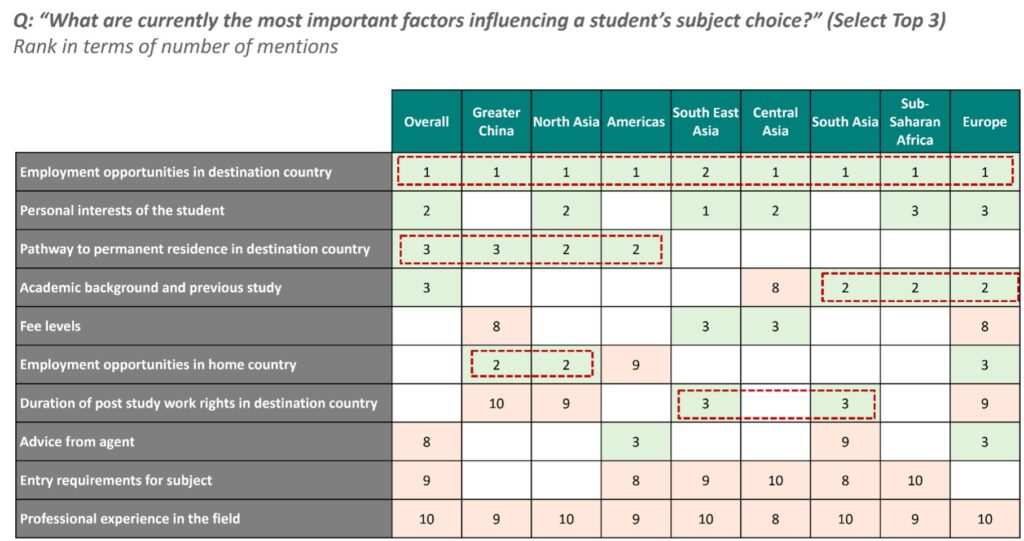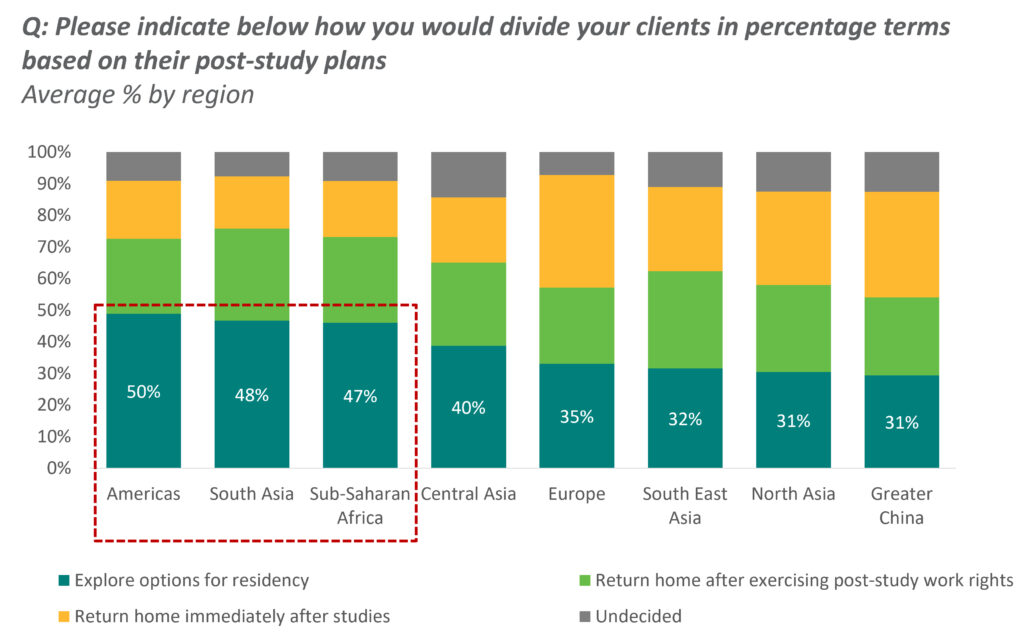
Agent survey reveals employment opportunities are an important consideration for international students
Employment opportunities in destination countries influence subject choice for international students
Surveys of international education students tend to focus on the factors that impact choice of study destination. Following requests from our university partners, Navitas’ October 2022 Agent Perception Survey introduced a new measure to assess the most important factors influencing international students’ subject choices. Specifically, we asked our agents “What are currently the most important factors influencing a student’s subject choice?”
Employment opportunity in study destination is a greater driver than previous study or personal interest
A student’s previous study or personal interest might be expected to be the major driver of subject choice for students embarking on overseas study. However, the Navitas survey reports that employment opportunities in destination countries are not only a key factor in choosing where to study, but also a major influence on the choice of what to study.
The survey results indicate that opportunities for employment in destination country is the most important factor in determining subject choice. Except for South East Asia, all regions rank destination employment opportunities as the most important factor in subject choice. After employment opportunities in destination country, the next most important factors vary across the regions. In South Asia previous academic studies are the second most cited factor, followed by duration of post study work rights. For Greater China, North Asia and Europe employment opportunities in the home country rank as a top three factor in subject choice.
At the other end of the scale, entry requirements and professional experience are consistently ranked as the least important factors in subject choice. These low rankings likely reflect students enrolling in degree programs having met subject requirements through their secondary education and degree programs not requiring previous professional experience as a prerequisite to entry.
Many students are considering post-study work rights and residency pathways in their study decisions
The survey also asks agents to indicate students’ likely post study plans, including exploring options for residency in their destination country and exercising Post Study Work Rights (PSWR) before returning home. While exploring options for residency is the highest reported post-study plan, the results indicate similar numbers of students (in percentage terms) making subject choices based on employment opportunities in the destination country as those planning to exercise PSWR before returning home.
Current policy directions that consider skills-based pathways to residency and attach PSWR to areas of labour market shortage can be expected influence students’ subject choices. With 1 in 4 students planning to exercise PSWR (23-30%) and larger numbers (31-50%) exploring residency options in their countries of study, courses targeted at labour market shortages and long-term national skills needs are likely to be in high demand for international students.
The importance of employment opportunities in study destination countries warrants ongoing assessment. With current economic conditions negatively affecting the finances of students and their families across Australia’s source regions, cost of living pressures could increasingly influence study choices. Similarly, the high importance of destination country employment opportunities provides insight to course design. Students can be expected to make subject choices that deliver a skill set with value in the divergent labour markets of their destination and home countries.
Student aspirations align with Australian government labour market priorities
While international students’ choice of destination country has long been linked to employment opportunities both during and post study, the Navitas Agent Perception survey indicates a similar strong link between employment opportunities and subject choice. This reflects a strong alignment between the priorities of the Australian government to address skills and workforce shortages and students’ choice of destinations and courses of study. Policy settings targeted at incentivising students to study in areas of labour market demand can be expected to attract students across Australia’s source regions.





